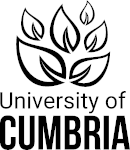
Looking Beyond - how the University of Cumbria is growing its apprenticeships programme and contributing to regional prosperity and pride
People, Place and Partnerships are at the heart of what the University of Cumbria does and the theme for National Apprenticeship Week 2020, ‘Looking Beyond’ very much supports this focus, celebrating the diversity and value that apprenticeships bring to employers, apprentices and communities.
Raising aspirations, widening participation and contributing to the social, cultural and economic well-being and prosperity of the region is why the University of Cumbria was established back in 2007. However since its inception, the higher education landscape has shifted. In addition, higher-level skills needs have become more acute, for new entrants to the labour market as well as those in employment.
Over the last three years the university has repositioned itself purposefully for this future, with robust plans for growth and future success across a range of learner and programme types, including for those in employment.
Higher-level apprenticeships are just one of the alternative routes for study on offer, enabling the university to engage with and support businesses in providing training in Cumbria, north Lancashire and, where appropriate, nationally in focused, niche areas of activity. Apprenticeships allow students to combine on-the-job training whilst studying for a qualification and the University of Cumbria offers a wide-range of higher-level apprenticeships across health, policing, business and tourism and the visitor economy.
University of Cumbria Vice Chancellor Professor Julie Mennell said: “We are proud of our position at the heart of the region, and we continue to develop employer, education and sector partnerships that support our vision of a dynamic, creative and entrepreneurial university community, with impact on our economy and communities.
“Higher-level apprenticeships are a key part of this offer and we have seen steady growth in this area as well as across our international, off campus and employer-led provision.
“It is however, only one aspect of how we continue to grow and recruit students. In Cumbria and the broader region we have significant higher level skills needs and lower than national average productivity levels to address.
“Of the 56,000 jobs which need to be filled by 2021, around 27,500 are expected to be at Level 4 (higher apprenticeship or NVQ) or above. Currently the county only has 28% of its working-age population qualified to this level.
“Working closely with the Cumbria Local Enterprise Partnership (LEP), the university has a clear strategic focus to support the Skills Investment Plan, delivering a mix of provision designed to serve the region’s needs and meet these challenges.”
Three years ago, the university won a multi-million pound contract to be the lead partner in a ‘Project Academy for Sellafield’, helping provide specialist education, training and professional qualifications across many levels to the company and its supply chain.
Building on this successful partnership, the university has been awarded contracts with key players such as the BBC, Rolls Royce and BAE Systems to deliver similar programmes and is now considered to be a national leader in the field of project management training.
“We have developed a range of diverse provision including our Project Academy, which is transforming the country’s project management capabilities, and our relationships with ambulance trusts to deliver Health and Care Professions Council approved paramedic training apprenticeships,” said Professor Mennell.
The university’s apprenticeship portfolio continues to grow and through a working partnership with three other universities’, Middlesex, Canterbury Christ Church and University of Portsmouth, it has secured a contract to deliver Police Constable Degree Apprenticeship’s, and will welcome its first recruits onto the programme in spring 2020 from Surrey Police.
A flexible chartered manager apprenticeship in the visitor economy, leading to a degree, was also launched last year and interest has been high among people in hospitality supervisory roles across the region.
Professor Mennell goes on to say: “As a university with a growing reputation, we continue to achieve far greater impact in the region and beyond than many may realise.
“As well as being ranked 28 out of 131 universities in the WhatUni Student Choice Awards, in March 2019 the Privy Council awarded the university Research Degree Awarding Powers. Gaining the powers to design, deliver and award research degrees symbolises a major milestone in furthering the university’s strategic aims and role.
“We were also delighted to be ranked as third in the north for students to start or manage a business in a recent study by Hitachi Capital Invoice Finance. The study involving 9.5 million former students revealed the best universities’ in the north and south for students to study at, with the aim of starting their own company or running a business in key managerial roles such as CEO or Managing Director.
“We have a strong vision and strategy in place, and have successfully established the university as a recognised centre of academic, professional and educational excellence.
“With new Institute’s for Health as well as Business, Industry and Leadership recently established, including appointments from industry, as well as academia, and a focus on addressing regional sector needs, the university is already seeing good results and growth across these areas.”
It is this diversification and mix of provision that puts the publication of today’s ‘UCAS End of Cycle Report’ into context, and the vice chancellor is keen to stress that the figures released today do not fully reflect the university’s student intake last year.
Professor Mennell explained: “The report published today only records applications made through UCAS, and therefore gives a national overview of demand for, and acceptances to, traditional undergraduate UK Higher Education courses for the 2019 admissions cycle. This is only part of the focus of our university.
“Once again, we are on track to deliver against our targets this year and with a renewed mission to improve social mobility, upskill the local workforce and retain graduates in the county as we continue to be the anchor organisation for Cumbria and the wider region.”
ENDS
Picture: University of Cumbria Vice Chancellor, Professor Julie Mennell
